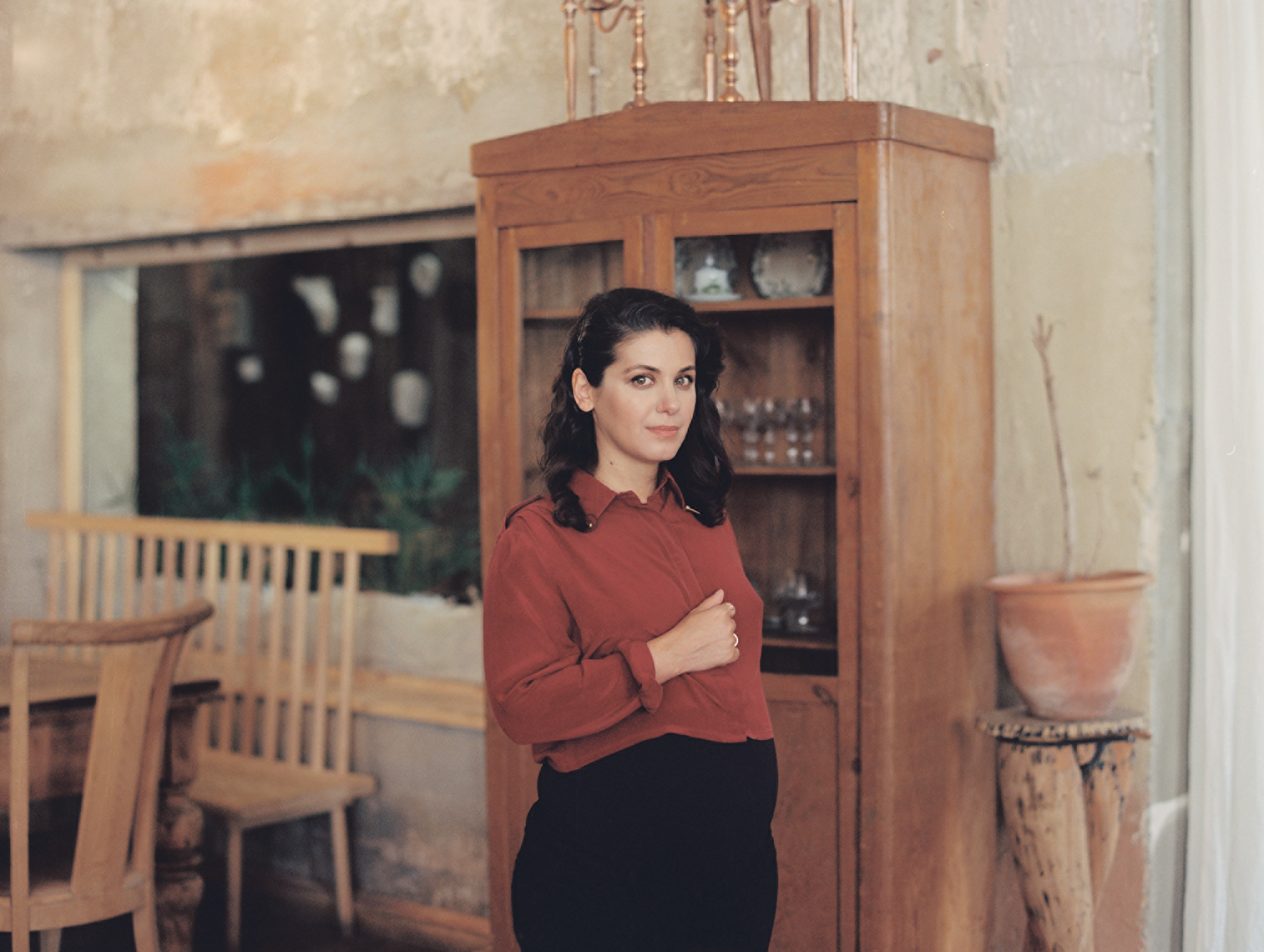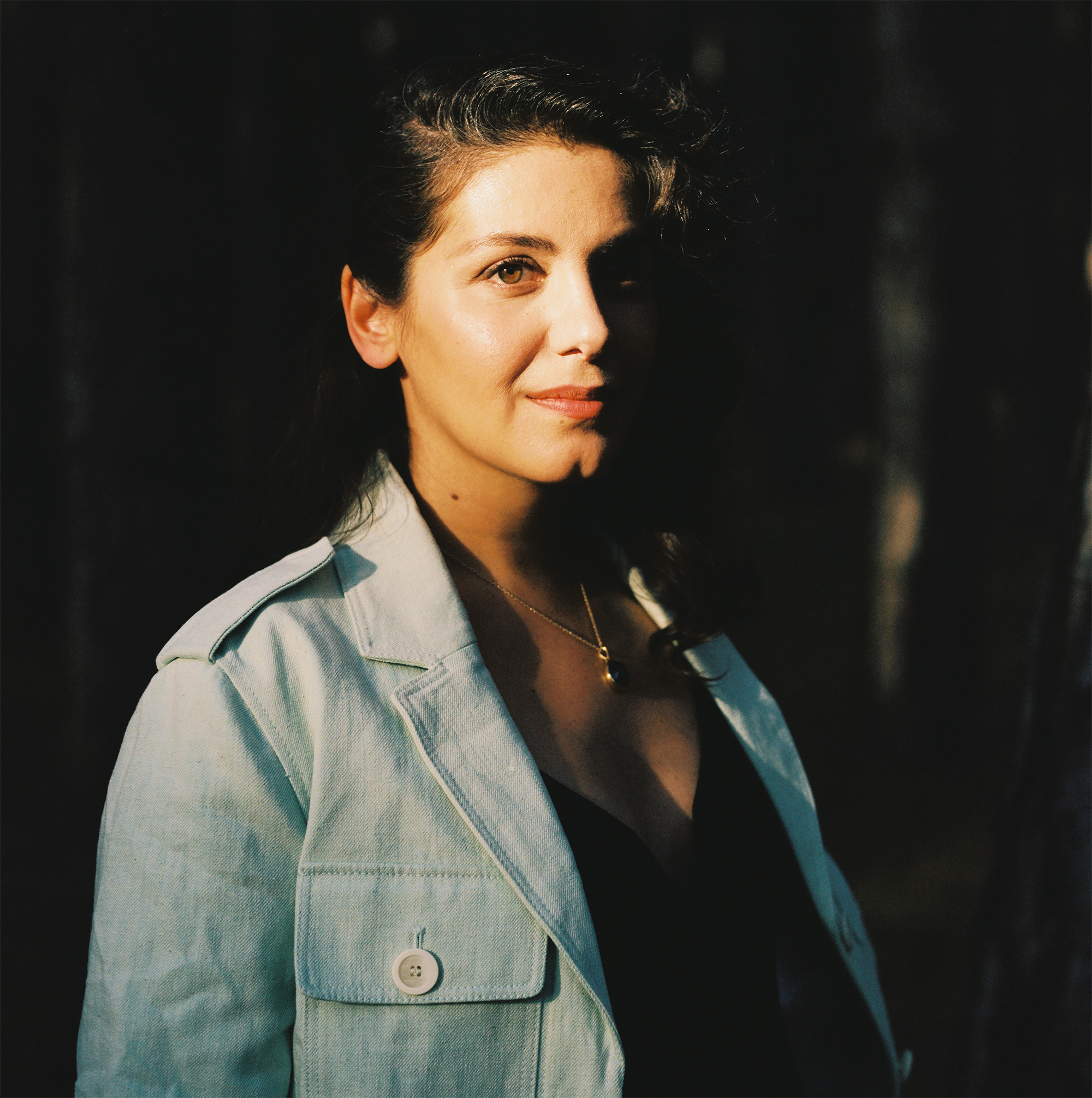Biography
Georgian-British singer-songwriter Katie Melua, has sold millions of albums and toured extensively around the world since her 2003 debut album Call Off The Search. Widely regarded as one of the UK’s most successful female musicians, the London-based Melua has received over 50 Platinum awards globally across her seven previous albums, all of which have charted Top 10 in the UK.
++++
On a chilly October morning, a heavily pregnant Katie Melua opens the front door of her West London home and it becomes apparent that there’s some catching up to do. Quite how much catching up depends on which Katie Melua remains suspended in the amber of your memory. Perhaps it’s the teenager who emerged into public view with Call Off The Search – the ...
Georgian-British singer-songwriter Katie Melua, has sold millions of albums and toured extensively around the world since her 2003 debut album Call Off The Search. Widely regarded as one of the UK’s most successful female musicians, the London-based Melua has received over 50 Platinum awards globally across her seven previous albums, all of which have charted Top 10 in the UK.
++++
On a chilly October morning, a heavily pregnant Katie Melua opens the front door of her West London home and it becomes apparent that there’s some catching up to do. Quite how much catching up depends on which Katie Melua remains suspended in the amber of your memory. Perhaps it’s the teenager who emerged into public view with Call Off The Search – the album which propelled the stillteenage Melua into two million homes in Britain alone. Or it might be 2005’s multi- Brits nominated Piece By Piece, which would go on to earn her two Brit Awards nominations. More recently, there have been acclaimed releases such as In Winter which saw Melua augment her careworn tones with subtle references to her Georgian upbringing – and her most recent solo studio release Album No.8, which revealed an artist seeking succour from new inspirations, from the words of Bob Dylan to the arrangements of Charles Stepney. A record for which she received career-best reviews, it was also a set of songs which truly saw her coming of age as a lyricist. Fresh from enrolling on a creative writing course at the Faber Academy, we saw a creatively emboldened Katie gently pushing back against the romantic idealism that forms the language of love in pop songs, searching instead for something that felt closer to her own experience.
From whichever point you last picked up the story, there’s perhaps no better time to behold the evolution of Katie Melua as a singer-songwriter than the songs that make up her ninth album Love & Money. In a career whose undoubted highs have also been punctuated with well-documented lows, Melua says that Love & Money is, in part, an attempt to let go of “that background belief that happiness carries less weight than its opposite.” It’s a declaration of intent made manifest in the opening song Golden Record. “What are you afraid of now,” Melua sings, seemingly addressing herself, “Worried you might be finally happy?” What the words hint at, is somehow made more explicit by an arrangement which – especially on the ultraviolet refractions of Martin Slattery’s piano – mirror the dawning realisation that love is there, waiting for you when you least expect it.
It’s an apt establishing shot. For all the balmy, radio-friendly languor of these songs, there are tensions to be resolved in them – tensions that come from Melua’s own struggle with the feelings of unworthiness that threaten to thwart the possibility of happiness. Melua found herself negotiating the thrilling but also frightening terrain of new love, an affair whose first faltering steps are tenderly documented on a diaphanous delight of sighs and syncopated brush strokes called First Date. Here, she chronicles the way her soon-to-be partner – and since November, father to the couple’s newborn son – set about trying to convince her that being present in the moment might be far better for her sense of well-being than “the tempos and the songs and all that overthinking.” The irony, of course, isn’t lost on Melua, who jokes, “So of course, what did I do? I went off and put it into a song.”
Nevertheless, a seed was planted. The pair embarked on seaweed-collecting excursion in Margate. “Not your classic location for first date,” laughs Melua, “But actually, it was perfect because, well… for a start, he thought it was a good idea, so that tells you a lot about him. And also, it was two hours in the car there and back, so it lasted thirteen hours in total. You get a pretty good idea if things are going to work after that amount of time.” Clearly the sun-dappled Balearic shuffle of Quiet Moves draws from the same well of inspiration, but really, what we’re also privy to here, is Melua exploring the space between her own natural reticence and her partner’s unselfconsciousness: “The first months of our courtship happened during lockdown, so about nine months elapsed before we found ourselves at a social event, which happened to be a wedding. It was the first time I saw him dance. He’s not a professional dancer, but in his own way, he embodied the music, and I just sort fell in love with him all over again.”
Featuring some achingly pretty interludes written by Melua’s brother Zurab, Pick Me Up sees her exchanging unguarded confidences with the subject of her adoration, breathlessly exclaiming, “We’re washing all the blues away.” On another Zurab Melua co-write Lie In The Heat, Martin Slattery’s piano and Phil Wilkinson’s drums sparkle around each other with an intuitive ease which calls to mind Paul Harris and Mike Kowalski’s timeless work on Nick Drake’s One Of These Things First.
Here and on the smouldering, secular gospel invocations of Those Sweet Days, Melua found herself questioning unexamined notions about the almost superstitious pacts that songwriters make with their muse – that art sculpted from misery somehow has a greater value than the songs spawned by joy. The song was written after Melua heard Bob Dylan’s 2015 version of That Lucky Old Sun: “I listened to that and I thought, ‘I want to write a song where I succumb to my most lazy self. With my Georgian background, that’s sometimes hard to do, because you feel like you’ve constantly got to work to show how thankful you are.”
In the case of Love & Money, the sweet relief of finding love in a time of unprecedented flux is intensified along the way by tender memorials to those who didn’t quite make it. Beneath the surface calm of 14 Windows lie the deep blue sentiments of a song inspired by Dr Mike McPhillips, the psychiatrist who helped steer Melua to safer waters after her six week hospitalisation in 2010, but twelve years later would decide to take his own life. “It’s hard to speak about,” says Melua, “Because I saw him for a solid two years and we stayed in touch ever since, but I didn’t get to see him before I got around to telling him that I’d finally found the soul mate he always said was out there.”
Another exceptional soul to which Melua pays tribute on Love & Money is climate justice writer, essayist and social media vigilante, Mary Annaïse Heglar. It was after reading a blog by Heglar that Reefs took shape – a song whose stately glow seems to reflect the imperturbable elegance with which Heglar herself holds the big oil conglomerates to account. “Inevitably, even in choosing who you’re going to write about,” says Melua, “You’re revealing something about yourself – and in that case, there’s definitely a sense of awe for people who can zone in on one topic and bang the drum for it, when most of us are trying to process all the things that seem to be wrong with the world at any moment in time.”
On a collection of songs sculpted by the gratitude of their creator, the bond is no more apparent that the to which it lends its title. Before Katie Melua first stepped into a recording studio, when she was still Ketevan Melua, just another new arrival in a country far from her native Georgia, she carried the same sense of obligation common to so many children of immigrants. That it was down to her to become the breadwinner who might be able to support her extended family back home. Addressing the feelings of guilt that come from prolonged periods away, this beautiful acoustic rumination sees her singing, I was in the neighbourhood, pretending to be someone good/Bringing love and money home,” with a bare vulnerability we’ve never quite heard from her before. “You make bargains with yourself,” she explains, “And sometimes long periods elapse without you seeing the people you care the most about. But it means that there are moments in life when you can be generous. And if someone comes to you to kind of ask for help, it’s such a raw and difficult moment for them, you know? But it means everything to be able to do that, you know?”
Whilst much has changed for Melua through the years, some key relationships carried over onto this record. Leo Abrahams (Ghostpoet, Brian Eno, Regina Spektor) – whose supple orchestral shadowplay helped set the musical tone of Album No.8 – is once again in the producer’s chair for Love & Money. As with that record, the pair set about creating an atmosphere in which their core musicians felt able to stretch out and express themselves in the moment. That fluidity and spontaneity characterised the sessions at Peter Gabriel’s Real World studios in the summer of 2022. In conversations with Abrahams, the phrase she kept coming back to was “blue-sky record.” She elaborates: “What I was thinking of was someone like Françoise Hardy, or the way some of those early Van Morrison records make you feel. You put it on and it’s like drinking a cool glass of water in the summertime.”
Certainly, Love & Money frequently feels like an album that wasn’t so much written as photosynthesised into being. “Why go dig in the hard and cruel jokes of life/you ve got all the tricks up your sleeve to summon the light?” asks Melua, hovering above love’s panorama at the sort of altitude where a single sniff on the ozone of adoration takes you beyond the corporeal realm. Perhaps the greatest gift imparted by these songs is that they allow us to see the world as they see it. And you’re in absolutely no hurry to come down. —————-


